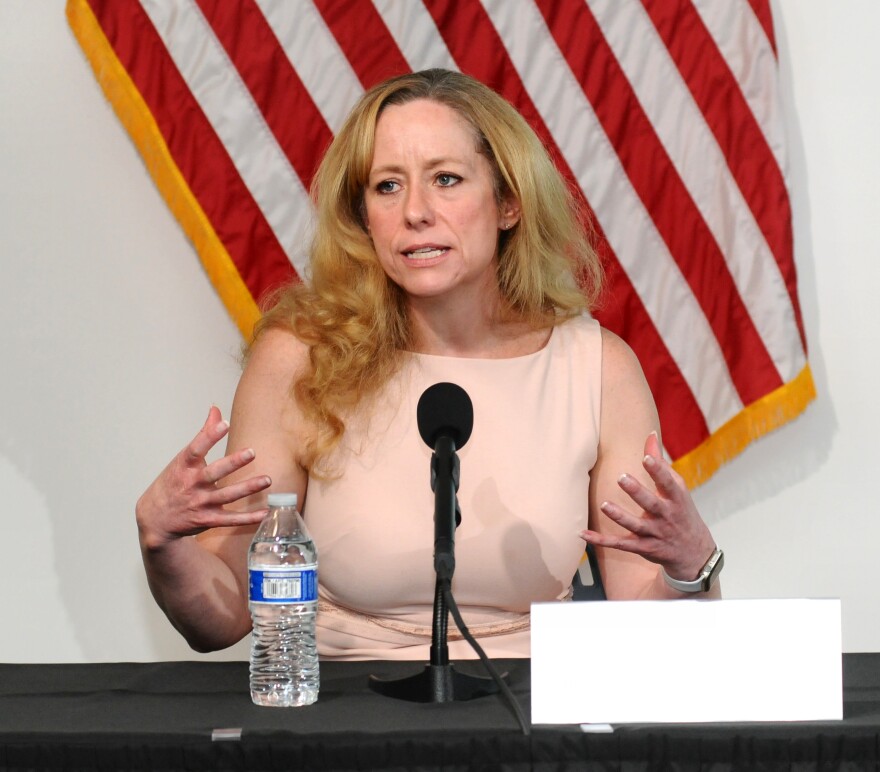By Howard Fischer
Capitol Media Services
PHOENIX -- Some Arizona resorts could find themselves facing orders to shut down part of their water parks.
State Health Director Cara Christ said Monday she is sending inspectors to these resorts to find out exactly how they are operating their water features. And Christ told Capitol Media Services that those that are operating in an unsafe fashion will face orders to close.
Part of the issue, she said, is that several resorts are advertising to get day visitors to their facilities to generate additional cash. That includes not just the pools but also the water slides, hot tubs and "lazy river'' floats.
But Christ also said that even those facilities that limit attendance to guests could wind up in trouble -- and with an order to limit activities -- if they are operating in ways that allow people to gather together in a way that could spread the virus.
The key, she said, is avoiding having large groups of people congregating.
"So if they're limiting the activities and it's limited to hotel guests and they're not drawing large crowds like people waiting, that will be taken under consideration,'' Christ explained
"But if they're bringing in the public and everything's open and they're operating as a water park, that's going to be a much different scenario,'' she continued. "And if you're doing both of those, that's completely off the table.''
Christ's comments come as her boss, Gov. Doug Ducey, on Monday asked a federal judge to throw out a lawsuit filed against him by the owners of Mesa Golfland Sunsplash which has been forced to remain closed. Its attorney, Joel Sannes, says there are resorts in Arizona which appear to be operating nearly identical facilities, not only for their own guests but even for day visitors willing to pay an admission fee.
Legally speaking, Sannes charges that there is no "rational basis'' for the disparate treatment. So he wants U.S. District Court Judge John Tuchi to order the governor to give the Mesa facility -- and any other freestanding water parks -- the same ability to operate.
Sannes may have a point.
Christ said when she and Ducey first crafted the order of what was allowed and what was not, the assumption was that resorts would limit attendance to guests. In that way, Christ said, there would be a list that health officials could use for contact tracing should someone come down with the coronavirus.
But all that was before Capitol Media Services provided her agency with an extensive list of resorts in Arizona that allow outsiders to pay a fee to use the facilities for a day. That got her agency's attention.
"What we're doing is we are sending our licensing surveyors out to do an on-site inspection of several of the facilities we have heard about to identify what they're doing and whether they are operating as a water park,'' Christ said.
So where is the line?
"If it's a pool with a slide, that's not a water park,'' she said. For example, Christ said, the governor's executive order permits city-run pools to operate.
Pools at hotels also can remain open if there are prohibitions against groups larger than 10 or more from congregating together in or near the water. And even pools at apartment complexes can be open if there are signs reminding people that they should not gather in groups of more than 10.
"Operating multiple attraction-type is also a different game than just operating a pool with a slide,'' Christ said.
What her investigators find after visiting the resorts to see what is and is not open could prove material to whether the governor wins the lawsuit.
In his Monday filings, Ducey attorney Brett Johnson told Tuchi that the governor's orders "do (ITALICS) not (ROMAN) permit hotel, resort, or municipal-owned water parks to operate.''
Even if they are open, Johnson said, it's legally irrelevant.
He said Golfland in essence is arguing that Ducey cannot enforce his executive order because other businesses may be operating illegally.
But Johnson said Golfland has submitted a request to reopen. And he argues that the facility can't go to court until there's a decision on that and it has exhausted its administrative remedies.
And the governor's attorney said there are other reasons for Tuchi to send Golfland packing.
"There is no property interest in operating a business,'' Johnson wrote. And he said temporary pauses of business operations, as is at issue here, do not deprive a business of any property interests they have.
Tuchi has scheduled a hearing on the issue for the end of the week.



